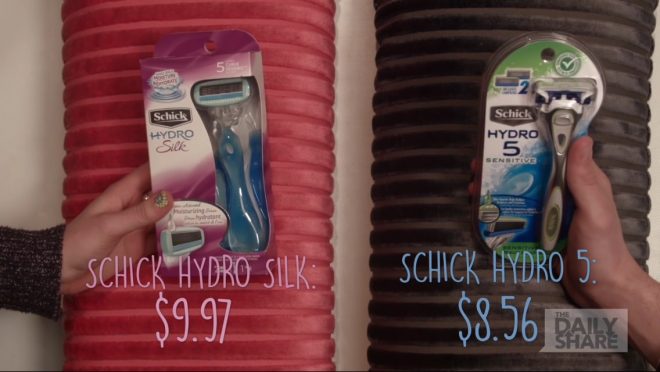
Both women and men go shopping, whether they enjoy it or not. We like to buy the best products for ourselves and make sure that we’re getting the best quality at a good price, but what we fail to realize is the price difference that can be found in just the other aisle.
There’s a term that refers to certain products or services that women are required to pay called, “pink tax”. According to New York Department of Consumer Affairs, the number of incidences where women have to pay more is around 42%. That’s means most of the time women pay more. Times where both genders pay the same, is 40%. Meanwhile, men end up paying more in 18% of instances.
Zahra Alfatusi, who identifies as a feminist, proudly states her complaints. “Equality is something that many people are trying to reach whether they are man or woman, but with things like pink tax, we are just being set back.” When I spoke with other people, both male and female, seemed to find the tax unfair.
Jaber Abugaslani, isn’t afraid to see things from a feminist’s perspective either. “The pink tax is both unfair and pointless. Why charge more for the same product just because it’s directed at a different group of people?”
“It might seem unfair, and I agree, but everything is done for a reason.” says Mohammed Alghanem, a clerk at a local store. “What business care about is the money, and they have realized that in general, more women are willing to pay for certain products and the same goes for the guys” That explanation does give us a point of view from a business perspective, but is it fair for our society in general?
Brands like Nike and Addidas though, know where their focus is. The prices for these sport related items tend to be more expensive for men, which just starts stereotyping people, thinks Grace Levine. “Society is trying to fit us into a box and basically guiding us into what we should and shouldn’t like based on our gender.”
Whether you were aware of the pink tax before or not, it is safe to say that no matter the reason, women shouldn’t be paying more for items just because buyers expect us to like it more. “Things like these almost make it shameful to be a girl, and nobody should ever be ashamed of who they are.” admits Zahra Alfatusi.
Unis Middle School Journalist
Zainab Alnajim